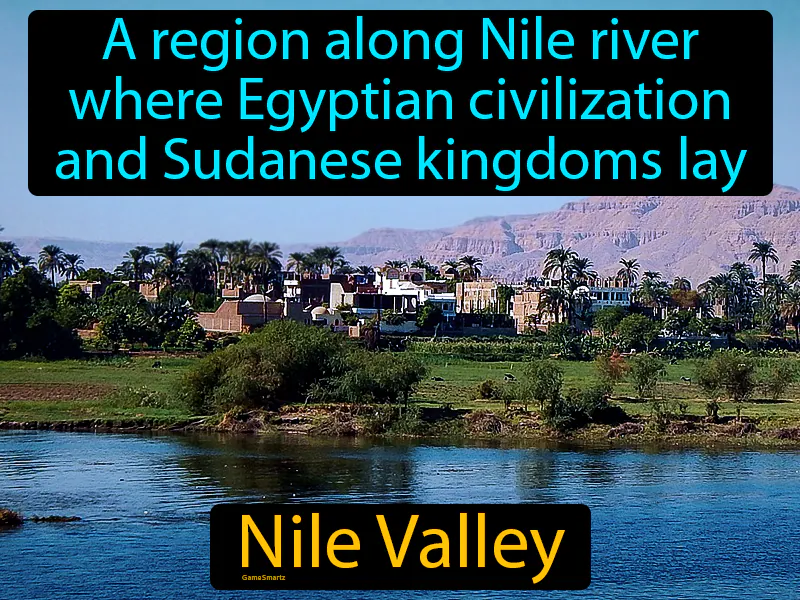Nile Valley
Nile Valley: Easy to understand
The Nile Valley was crucial for the development of ancient Egyptian civilization because it provided fertile land for agriculture, thanks to the annual flooding of the Nile River. This abundance of resources allowed the Egyptians to grow crops, which supported a stable food supply and the growth of their society. The concept of the Nile Valley addressed the problem of finding reliable food sources in a desert region, enabling the Egyptians to build complex structures like pyramids and develop advanced culture and governance. Today, the Nile Valley still matters because the river continues to support millions of people in Egypt and Sudan, providing water for drinking, farming, and industry. For instance, a family in Egypt might rely on the Nile for irrigating their crops, which they sell at local markets, directly affecting their livelihood and the local economy.

Practice Version

Nile Valley: A region along Nile river where Egyptian civilization and Sudanese kingdoms lay. Nile Valley. The Nile Valley is a fertile region in northeastern Africa that was home to ancient Egyptian and Sudanese civilizations.